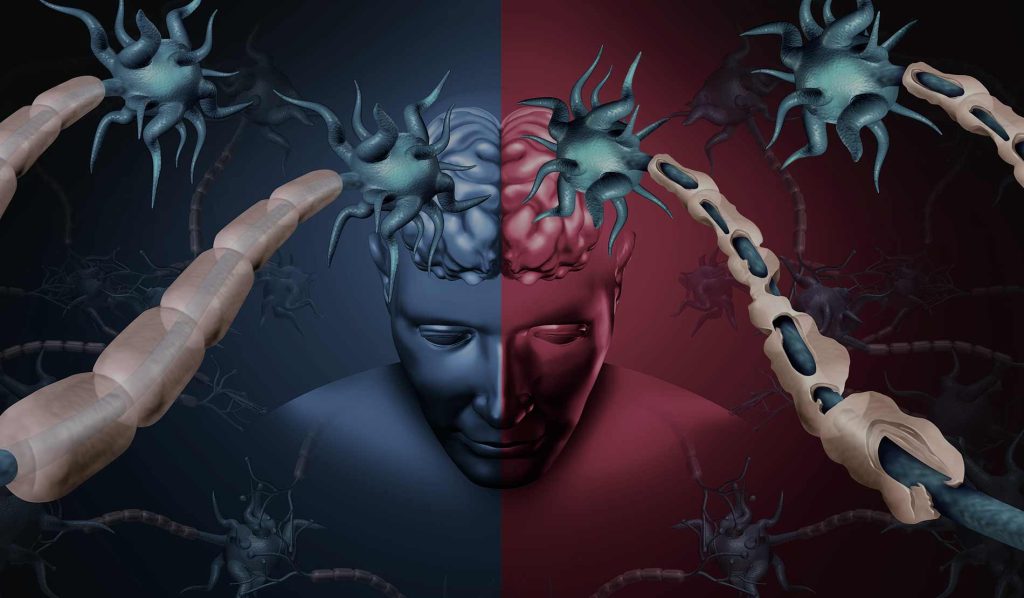Cell Therapy
Stem cells and rheumatoid arthritis, RA
Mesenchymal stem cells, MSCs are an interesting cell candidate for the development of treatments for autoimmune diseases such as rheumatoid arthritis, RA. MSCs have the ability to attenuate an overactive immune response, found in these patients1.
Rheumatoid arthritis, RA, like osteoarthritis, affects the joints.
The disease can also affect other parts of the body such as skin, eyes, lungs and heart2. RA is an autoimmune disease in which the body’s immune system attacks the articular cartilage and surrounding tissues, causing destruction, limited function and pain3. About 75 000 people in Sweden live with the disease4. It is not yet completely clear what causes the development of rheumatoid arthritis. Heredity is of great importance, but can not alone lead to the disease, other factors are also required, such as environmental factors, for developing RA. It has been shown that smoking in combination with a special set of genes increases the risk5.
It is not possible to cure RA, but with medication the inflammation can be controlled to some extent.
The aim of RA treatment is to control symptoms, prevent joint damage, and maximize your quality of life and ability to function. Several of today’s medications are focused on inhibiting molecules in the inflammatory process.
In recent years, interest in stem cell therapies as a therapeutic option for the treatment of RA has increased. Clinical trials with stem cells as a treatment for RA, give patients struggling with severe pain and lost mobility hope.
Since RA is an autoimmune, inflammatory disease, it means that the intended mechanisms for the therapeutic effect of stem cells are primarily directed at the immune system, rather than at the joints themselves.
Stem cells and specifically MSCs have an inherent property that, when given to a patient, they reach the site of inflammation. MSCs can also reduce inflammation and stabilize the immune system6. Most studies on RA focus on using MSCs as stem cell source and their anti-inflammatory effect, as RA is linked to inflammation. A clinical trial conducted by Wang, et al., showed that infusion of MSC in patients with RA resulted in a significant reduction in two molecules that are important in the inflammatory process1. In another study by Luque-Campos, et al., MSCs has been shown to modulate the immune system to reduce inflammatory processes and thus reduce pain and increase mobility, which promotes better health and quality of life7.
Referenser
- Wang, L. et al. Human umbilical cord mesenchymal stem cell therapy for patients with active rheumatoid arthritis: safety and efficacy. Stem Cells Dev 22, 3192-3202, doi:10.1089/scd.2013.0023 (2013).
- Majithia, V. & Geraci, S. A. Rheumatoid arthritis: diagnosis and management. Am J Med 120, 936-939, doi:10.1016/j.amjmed.2007.04.005 (2007).
- Guo, Q. et al. Rheumatoid arthritis: pathological mechanisms and modern pharmacologic therapies. Bone Res 6, 15, doi:10.1038/s41413-018-0016-9 (2018).
- Eriksson, J. K., Johansson, K., Askling, J. & Neovius, M. Costs for hospital care, drugs and lost work days in incident and prevalent rheumatoid arthritis: how large, and how are they distributed? Ann Rheum Dis 74, 648-654, doi:10.1136/annrheumdis-2013-204080 (2015).
- Klareskog, L. et al. A new model for an etiology of rheumatoid arthritis: smoking may trigger HLA-DR (shared epitope)-restricted immune reactions to autoantigens modified by citrullination. Arthritis Rheum 54, 38-46, doi:10.1002/art.21575 (2006).
- Lopez-Santalla, M., Fernandez-Perez, R. & Garin, M. I. Mesenchymal Stem/Stromal Cells for Rheumatoid Arthritis Treatment: An Update on Clinical Applications. Cells 9, doi:10.3390/cells9081852 (2020).
- Luque-Campos, N. et al. Mesenchymal Stem Cells Improve Rheumatoid Arthritis Progression by Controlling Memory T Cell Response. Front Immunol 10, 798, doi:10.3389/fimmu.2019.00798 (2019).



